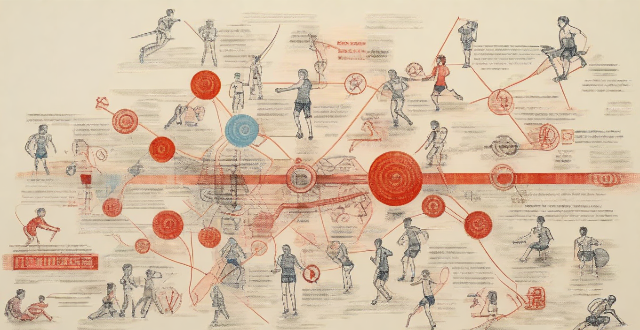Artificial Intelligence (AI) is transforming the world of sports, especially in coaching and strategic planning. AI technologies offer coaches valuable insights to make data-based decisions that can significantly boost team performance. AI's influence on coaching and strategy development in sports includes performance analysis, game strategy development, and injury prevention and recovery. AI algorithms can analyze vast amounts of player performance data, providing coaches with detailed insights into areas where improvements can be made. AI technologies can also assist coaches in developing game strategies by analyzing opponent teams' strengths and weaknesses. Additionally, AI plays a crucial role in injury prevention and recovery by monitoring player health and fitness levels. As AI technologies continue to advance, we can expect even more innovative solutions that will further enhance the coaching experience and drive success in sports.

AI's Influence on Coaching and Strategy Development in Sports
Artificial Intelligence (AI) has revolutionized the world of sports, particularly in coaching and strategy development. The integration of AI technologies has provided coaches with valuable insights, enabling them to make data-driven decisions that can significantly improve team performance. Here are some ways AI influences coaching and strategy development in sports:
1. Performance Analysis
AI algorithms can analyze vast amounts of data from players' performances, providing coaches with detailed insights into areas where improvements can be made. This includes analyzing player movements, speed, agility, endurance, and other physical attributes that contribute to overall performance. By identifying these areas, coaches can develop targeted training programs to enhance player skills and fitness levels.
Examples of AI-powered performance analysis tools:
- Catapult Sports: A wearable technology that tracks player movements during training and matches, providing coaches with real-time feedback on player workload and fatigue levels.
- Stats Perform: An advanced analytics platform that uses machine learning to predict player performance based on historical data, helping coaches make informed decisions about line-ups and tactics.
2. Game Strategy Development
AI technologies can assist coaches in developing game strategies by analyzing opponent teams' strengths and weaknesses. This information allows coaches to create tailored game plans that exploit opponents' vulnerabilities while minimizing their own team's weaknesses. Additionally, AI-powered simulations can help coaches test different strategies before implementing them in actual games.
Examples of AI-powered game strategy development tools:
- Hudl: A video analysis platform that uses AI to automatically tag key moments in game footage, allowing coaches to quickly identify patterns and tendencies in opponent teams' play styles.
- Second Spectrum: A live tracking system that provides coaches with real-time data on player positions, ball movement, and shot probability, enabling them to make strategic adjustments during games.
3. Injury Prevention and Recovery
AI technologies can also play a crucial role in injury prevention and recovery by monitoring player health and fitness levels. By analyzing biometric data such as heart rate variability, sleep patterns, and stress levels, coaches can identify potential health issues before they become more serious problems. This proactive approach helps reduce the risk of injuries and ensures players return to competition as quickly as possible after recovering from injuries.
Examples of AI-powered injury prevention and recovery tools:
- Kitman Labs: A wearable technology that tracks player wellness metrics such as sleep quality, stress levels, and fatigue, allowing coaches to adjust training loads accordingly.
- Zebra Technologies: A sensor-based system that measures player impact forces during collisions, helping coaches identify concussion risks and implement appropriate safety measures.
In conclusion, AI has significantly impacted coaching and strategy development in sports by providing coaches with valuable insights into player performance, game strategy development, and injury prevention/recovery. As AI technologies continue to advance, we can expect even more innovative solutions that will further enhance the coaching experience and drive success in sports.